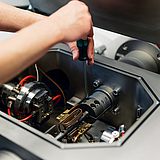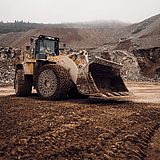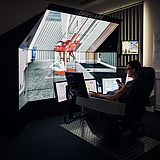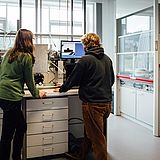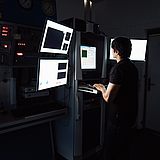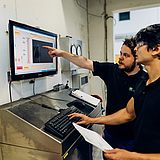Master’s
A master's degree is a graduate degree. Thus, one of the prerequisites for admission is a successfully completed undergraduate program (i.e. a bachelor's program). The standard duration of most master’s programs at TU Clausthal is four semesters.
Each bachelor’s program at TU Clausthal has at least one consecutive master’s program (see Permitted bachelor’s and master’s combinations). Once you have your bachelor’s degree, you do not need to go through a separate application and selection procedure to be admitted for a consecutive master’s program.
If you did not complete your bachelor’s degree at TU Clausthal, please consult the Prerequisites section on the page of the master’s program you wish to take, to find out what other prerequisites you may need to meet in order to apply. A master’s degree is equivalent to the Diplom degree that German universities used to offer. Master’s graduates are qualified for doctorate studies.
![[Translate to English:] [Translate to English:]](/fileadmin/_processed_/9/1/csm_Beachvolleyball_1_1a8913aa18.jpg)

![[Translate to English:] [Translate to English:]](/fileadmin/_processed_/6/0/csm_Digitechnologie-master-bear_530b2407b3.jpg)
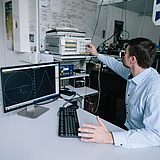
![[Translate to English:] [Translate to English:]](/fileadmin/_processed_/d/2/csm_Master-Energie-Materialphysik_675f015df2.jpg)
![[Translate to English:] [Translate to English:]](/fileadmin/_processed_/a/0/csm_Master_Energiesystemtechnik-2_147853ad3e.jpg)
![[Translate to English:] [Translate to English:]](/fileadmin/_processed_/3/a/csm_Master_GeoenvironmentalEngineering_Master_6635982186.jpg)
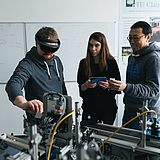
![[Translate to English:] [Translate to English:]](/fileadmin/_processed_/6/c/csm_teaser_intelligent_manufacturing_14c5d78fae.jpg)
